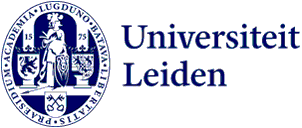(Personal) mobile devices
If you have a mobile device such as a smart phone or tablet that you purchased privately but also use for work-related purposes, it is important that you save your documents securely and deal responsibly with confidential information.
Bring Your Own Device (BYOD)
Do you use a mobile device, such as a laptop, smartphone or tablet, for business purposes? And do you have access to and send university information using that device? If so, you have a duty to manage that information properly.
Here are some guidelines from the university:
- Wherever possible, use smartphones and tablets provided by the ICT Shared Service Centre (ISSC). ISSC staff instal appropriate security measures on all the devices they manage, which means there’s less for you to do to make sure your device is secure. It goes without saying that you should stay alert and follow the ISSC user instructions.
- If you work whilst connected to a public WiFi network, for example on the train or in a hotel, you should always use eduVPN to connect to the university’s network. We recommend using eduVPN at all times, even when you’re working from home. This instruction video will help you instal it.
- Make sure antivirus and anti-malware software is installed on your device.
- Instal security updates as soon as possible. Don’t try to get around your device’s security settings by ‘jailbreaking’ or ‘rooting’ it.
- Only instal and use official, legal software that is actively managed. Click here for more information on how to instal software offered by the university on your private device.
- When opening, editing, sharing and sending secure files, only use the applications offered by the university such as OneDrive and Outlook (in Office 365). Use Surfdrive to send large files. If you don’t have access to a particular application, you can get in touch with the helpdesk or your contact in IT.
Don’t use applications such as Gmail or Hotmail to share work-related information. - Use Office 365 (OneDrive), Sharepoint or Brightspace to open work-related files. Click here to read more about using Office 365 and OneDrive.
- Always save confidential information or personal data in the university file system. Never save this information to your own device. You are allowed to process other kinds of information, but you remain responsible for properly managing and deleting that information.
- Use Signal as a secure alternative to WhatsApp. Do not send sensitive information as an attachment; instead, share a link to the location of the information in the university’s own system.
- Make sure your laptop, smartphone and tablet have robust screen protection, such a pin code made up of at least six characters or a strong password. You can add biometric security (such as a fingerprint scan or facial recognition), as long as you have also set a pin code or password.
- The university is entitled to require the installation of certain software on your device, so it can be managed remotely. We do this to ensure that work-related data can be deleted remotely, for example if the device is stolen. We will of course respect your privacy.
- Never leave your device unsupervised and unlocked.
- Only use devices which belong to you and which only you use. Do not use devices you share with anyone else, such as a family member.
- If your device is lost or stolen, report this to ISSC and change your ULCN password immediately. You are personally responsible for deleting any university data stored on the device.
Would you like to instal software on your own workstation? Or maybe you want to check your work e-mail on your phone. Browse the collected IT workstation manuals, sorted by topic, for more information. If you still have questions about the right way to manage your device, please contact the ISSC helpdesk or your contact in IT.
